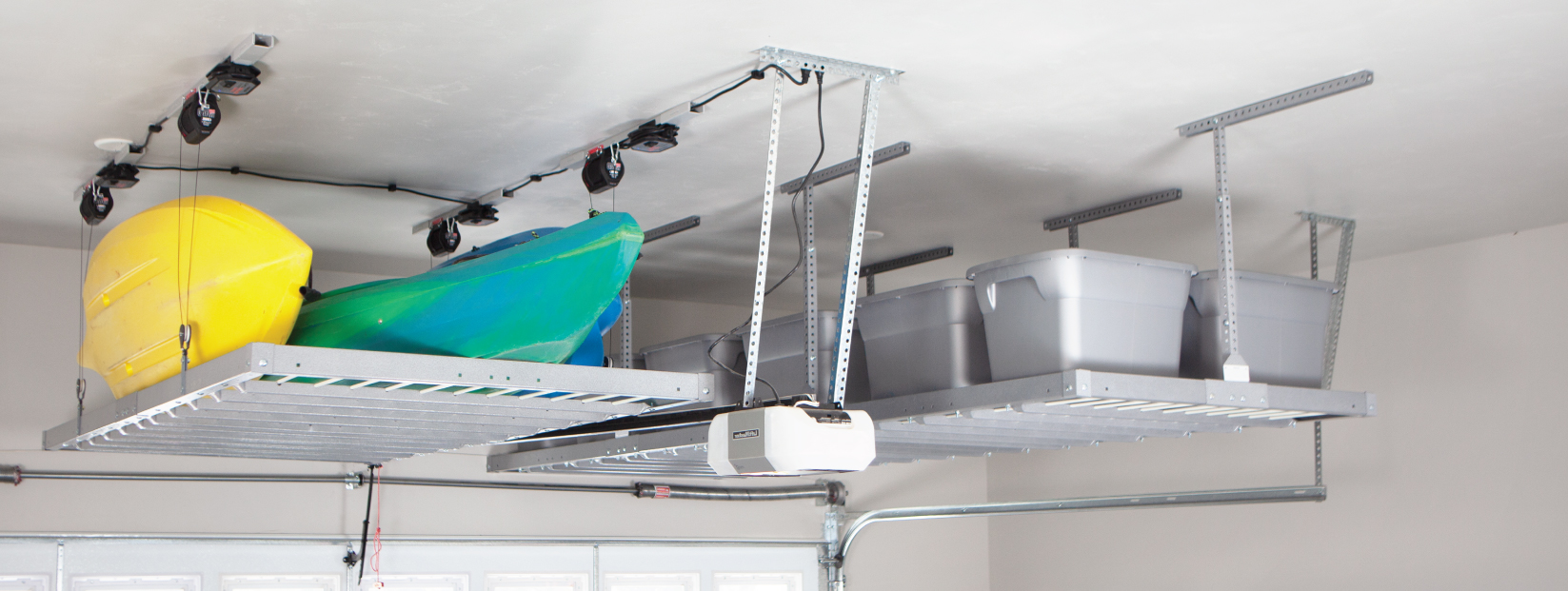Concrete Sealers – What You Need to Know
Applying a concrete sealer to your new concrete project, for example – sealing new concrete driveway, is always a good idea since it will help strengthening, protecting and enhancing its look for many years. But how to decide what is the best concrete sealer to use? This article will introduce different types of concrete sealers and help you choose the right sealer for your project.
Types of Concrete Sealers
There are two main types of concrete sealers: film-forming and penetrating.
Film-forming sealers protect the surface of the concrete, and they are mostly used for decorative concrete work. They highlight colors on stamped or acid stained concrete floors. They can be divided into 3 subtypes:
– Acrylics – can be either water based or solvent based; they are both economical and easy to apply providing excellent protection against water and deicing chemical absorption. The are also UV resistant and nonyellowing. Unlike other two types of sealers it‘s wearing out faster and it should be reapplied every once in a while. It can be applied both on the interior and exterior concrete, it can improve the look of stained, colored, exposed concrete and it also dries quickly.
– Polyurethanes – they can be water or solid based too, but they are thicker than acrylic sealers, and providing better protection. Before applying, the surface must be completely dry in order to avoid bubbling and foaming. Ideal for high traffic areas.
– Epoxies – They will provide you with strong, long lasting and resisting finish. They easily adhere to both concrete and cement overlays, but it‘s better to use them on interior projects since they change color if exposed to UV rays. They can be clear or colored.
Penetrating sealers (silanes, siloxanes, silicates and siliconates) are densifiers and hardeners that penetrate deep into the concrete surface creating a dense and durable protection. They chemically react with concrete protecting it against moisture and deicing chemicals. They don‘t change the surface of the concrete, making it strong to withstand the harsh weather conditions. Besides having a natural matte finish, they allow moisture vapor to flow, and they are usually applied on exterior projects.
How does the temperature affect the concrete sealers?
Both air and surface temperature can seriously affect the sealer reactivity. When applied, it‘s important that the sealing cures and forms the film, and the temperature plays the major role in how and whether this reaction will occur. The best temperature to apply the sealer is 50-90 F. Here‘s how the sealers react at high and low temperatures.
The minimum temperature required to form a protective film is 40 F or higher. If it‘s below stated, the film will not be fully formed, it won‘t cure properly and won‘t get hard. If you don‘t want your concrete sealer to be weak – avoid low temperatures.
As the temperature plays the role of the catalyst it means that higher temperature causes faster reactivity. But as the temperature rises, getting the sealer out becomes more difficult. If the temperature is too high it can cause the formation of ‘spider web‘ strings from the spray tip and the sealer can‘t form the protective film. High temperatures can also cause bubbling or blistering in the sealer. So when the weather forecast indicates the rise of the outside temperature (above the recommended range), you should apply the sealer in the morning or evening hours.
Why is a siliconate concrete sealer different from other coatings?
Unlike other coatings it really penetrates into the concrete and forms a strong protection. Sealing new concrete with other garage floor sealers forms the protective film only at the surface. A siliconate sealer goes deep into the concrete, triggering a chemical reaction and creating a calcium silicate. That‘s why it strengthens the concrete, effectively protecting it from water, stains, and damages. It is also resistant to mold, road salts, and deicing fluids. So if you decided on sealing concrete driveway or sealing concrete patio, and the temperature drops below zero overnight, your driveway or patio will be protected from the damage that the melting snow and deicing fluids may cause.
Is the siliconate sealer durable?
The siliconate sealer is very resilient, so you don‘t have to worry about the damage if heavy objects or vehicles move across the floor. Since it does not form a film, but penetrates deep into the structure it acts as concrete itself.
Reminder: you have to repair the cracks before applying the sealer. If the floor is well prepared and applied properly, you can expect it to last for more than 10 years.
How to apply a siliconate sealer to your garage floor?
First of all, you have to thoroughly clean the surface from dust, stains, and spills. When you do all the cleaning and scrubbing you should wash the top floor and leave it to dry for 24h. Then you apply the sealer and leave it to cure for 12 hours when it will be ready for traffic. If you want to easily protect your floor with minimal expense, you should consider using a siliconate sealer.
What is the best siliconate concrete sealer?
These two products have the best siliconate concrete sealer reviews:
PS101 /Concrete Sealers USA – the best performing product that hardly wears down and it can last for years. Its coverage rate is 300-450 ft2 /200-300 ft2 per gallon depending on the surface.
Armor SC25 – has a great performance on driveways, patios, garage floors- It covers 200-250 ft2 /100-150 ft2 depending on the surface.
Although classified as penetrating sealers, avoid using silicone or siloxane sealers. Although they partly penetrate into the concrete’s structure, they remain on its surface, and that‘s why they wear away quickly and must be regularly recoated every year.
Other sealers are the combination of silane and siloxane – together they make a good protective match, but in these blends, siloxane wears away quickly, and silane penetrates too deep into the structure, so that it loses its protective function.
Silicate concrete sealers
Silicate concrete sealers, a high quality, dependable choice of penetrating sealers, are also commonly used for densification. They contain small particles of silicate that go deep into the pores of concrete to create CSH or calcium silicate hydrate. It is a naturally occurring mineral within the concrete that makes it strong and durable. Since concrete is naturally porous with a large number of air pockets, the silicate chemically reacts with the calcium, free lime, and various alkalis within the concrete create more CSH, which automatically makes the concrete stronger!
What can go wrong if you apply sodium silicate by yourself?
Sodium silicate concrete sealer has been used for waterproofing and strengthening concrete for ages. If you under-apply a sodium silicate sealer it might not work, that’s why you should consider calling a professional contractor to do the work for you. As we already said, the silicates create CSH within the pores. Don‘t risk to completely fill the pores with newly formed crystalline structure, cause if you don‘t do it right you will not protect your floor from water and moisture.
Another bad thing that might happen is if you apply more than needed, then the unreacted material can carry salts and other substances and with air contact, these substances harden on the surface and look ugly. The only way to remove them is to use sulfuric or phosphoric acid.
If you don‘t know how to apply a sodium silicate sealer call a professional company, and avoid a potential damage and a severe headache. For the best results choose the best silicate concrete sealer brands. Check how these products have been rated by the users, and thoroughly read the silicate concrete sealer reviews.
The proper way to apply sodium silicate:
1. It should be applied in light, even coats; it should look saturated, but not oversaturated.
2. Don‘t apply too many coats. After the first coat, it should be waited for 24 h to pass, and then apply another one.
3. Wait for the sealer to fully cure before applying paint.
How do silicates work?
We already said that the silicate sealers have the potential to create efflorescence (a crystalline deposit of salts on the surface of the porous material) – it‘ will most probably happen with sodium, then potassium and the lowest chance has lithium.
The function of sodium, potassium, and lithium in silicates is to stabilize and solubilize the silicate to remain the solution until it penetrates the concrete and react with calcium hydroxide. The hydroxides from sodium and potassium must be removed before they crystallize on the surface. Lithium silicate concrete sealer dries to dust, leaving no residue, and it also raises the PH of the concrete surface reducing the chance of alkali-silica reaction (ASR).
Why use lithium silicate concrete sealer instead of sodium?
The answer is simple: it‘s much easier to apply it and it takes less time. It‘s sprayed lightly on the surface, and unlike other silicates, it leaves no ugly residues if sprayed reasonably. You also don‘t have to scrub it into concrete to cause the reaction, and it needs lower concentration.
Silicate residues are hazardous materials and must be disposed of safely.
How silicate concrete sealers differ?
There are many different silicates available in the market. Lithium silicate sealers are at the highest price, unlike sodium silicate which is widely used in many industries. Lithium silicates are generally more reactive and effective than sodium silicates.
Are concrete sealers toxic?
Some types of concrete sealers can be toxic. For example, if you‘re working inside and you cannot ventilate area in apropriate way. In such cases, it‘s safer to use water-based sealers, since solvent-based sealers are very flammable, and breathing in the fumes can harm your health. The solvent based sealers may also contain VOCs that can also endanger your health.
Are siliconate sealers environmentally friendly?
Sealers extend the life of concrete and they are a significant element of ‘green‘ building, so they are positively rated by LEED (Leadership in Energy and Environmental Design) who imposes the green building standards that every project must meet.
You should know that water-based products are the most environmentally friendly. Contact your concrete sealer supplier to tell you where to buy siliconate concrete sealer according to the ‘green‘ building standards.
The benefits of penetrating concrete sealers:
- It‘s non-slippery
- They increase the strength of concrete
- It acts as a good moisture protector
- It doesn‘t peel off or turn yellow
- They add solidity and abrasion resistance to the surface
- It makes stained concrete looks like new again
- It‘s freeze/thaw resistant
- It‘s not too expensive
- It makes the concrete water and stain resistant
- It‘s easy to apply and long lasting
Conclusion
If your goal is to protect concrete, prevent dusting and avoid staining, buying one of the penetrating concrete sealers is something that you may take into consideration. It‘s not enough that your driveway looks nice if you want it to remain nice looking you must think how to protect it. Even those who don‘t care about the aesthetics but just want a functional and well-performing space without high expenses and complex preparation should consider a siliconate garage floor sealer.
Make the right choice – think what you want your garage sealer to do for you. Decide what‘s the best product for your project depending on the amount of money you‘re willing to spend and your specific requirements. Whichever product you may choose concrete sealing will definitely be a good investment!




